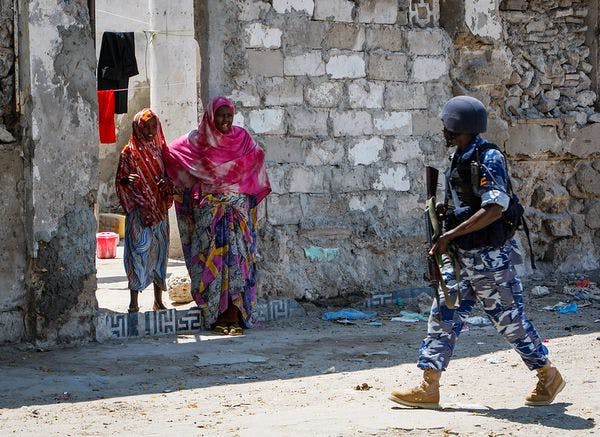AMISOM Public Information - Flickr - CC0 1.0 DEED
Uganda: Dear Mr President, here’s my appeal to resist signing the Narcotic bill
I hope this letter finds you in good health and high spirits. I am writing to you with great concern regarding the proposed Narcotic and Psychotropic Substances Bill that is currently under your consideration.
As a concerned citizen deeply invested in the well-being and progress of our beloved Uganda through the Uganda Harm Reduction Network (UHRN), I am compelled to express my apprehensions and urge you to desist from signing this bill into law.
While I understand the importance of addressing the challenges posed by drug abuse and trafficking, I am concerned that certain provisions in the proposed bill may have unintended consequences for individual freedoms, public health, and the overall development of our society.
The global community has increasingly recognized the need for balanced and evidence-based drug policies that prioritize harm reduction, rehabilitation, and human rights. According to the Uganda police annual report of 2022, 2,797 cases of narcotics/ drugs were reported countrywide, yet of that figure, 1,816 cases were taken to court and only 367 cases secured convictions, most of which were minor offences.
By measure of the Penal Code Act, an offence that attracts such paltry convictions needs deeper scrutiny to find ways of reducing them rather than rolling out tough laws that may be detrimental.
So, the concept of decreasing harm should be important to public policy, yet expressly trying to remove drug-related harms through legislation has never worked in drug control anywhere in the world. In passing the bill, parliament has an assumption that all drug use is ‘abuse’ and that only immediate abstinence is acceptable.
This is counterproductive and prevents harm reduction from being a drug policy priority. So, I respectfully request you, Mr President, consider the following points before making any decisions on the Narcotic and Psychotropic Substances Bill:
HUMAN RIGHTS CONCERNS:
Some provisions in the bill may pose a threat to individual privacy and freedom. It is crucial to ensure that any legislation preserves and protects the fundamental rights of Ugandan citizens.
As a result, criminalizing drug use may dissuade people from seeking medical care for drug-related health problems, infringing on their right to health. Punitive measures can stymie harm reduction attempts by making it harder for people to get clean needles, overdose prevention measures, and other health services.
FOCUS ON REHABILITATION:
Emphasizing rehabilitation and treatment over punitive measures has proven to be more effective in addressing drug-related issues. Investing in healthcare, education and support services can contribute significantly to reducing the demand for illicit substances.
What we need are diversion programs that redirect people who use drugs away from the criminal justice system into community-based rehabilitation programs. In fact, from my experience at UHRN, such centres further need to be allocated resources and protection to provide accessible and evidence-based treatment for individuals with substance use disorders.
INTERNATIONAL BEST PRACTICES:
It would be beneficial to align the proposed legislation with international best practices in drug policy. Learning from the experiences of other nations can help in crafting effective and humane policies.
So, since harm reduction approaches aim to minimize the negative consequences associated with drug use, engaging in open and inclusive consultations with various stakeholders, including health professionals, legal experts, civil society organizations and affected communities, is crucial to ensuring a comprehensive and well-informed approach to drug policy.
Mr President, you may not be aware but people who inject drugs need access to clean needles and syringes to reduce the transmission of blood-borne infections, such as HIV/Aids and hepatitis.
I also wish to inform you that organizations such as UHRN regularly conduct public awareness campaigns and educational programs to disseminate information about the risks associated with drug use, safer consumption practices, and harm reduction strategies. These outreach programs have saved hundreds of thousands of people who inject drugs.
Therefore, it is on this background that I advocate for a law that prioritizes public health over punitive measures, decriminalizing personal drug use and possession while focusing on diversion and treatment options.
Mr President, I understand the challenges you face in addressing complex issues such as drug abuse and trafficking. However, I believe that a balanced and evidence-based approach will be more successful in achieving the desired outcomes without compromising the rights and well-being of our citizens.
I appreciate your attention to this matter and trust that you will give due consideration to the concerns I have raised. Your leadership in promoting policies that prioritize the health, welfare, and human rights of our people will undoubtedly contribute to the continued prosperity of our great nation.
Thank you for your time and consideration.
